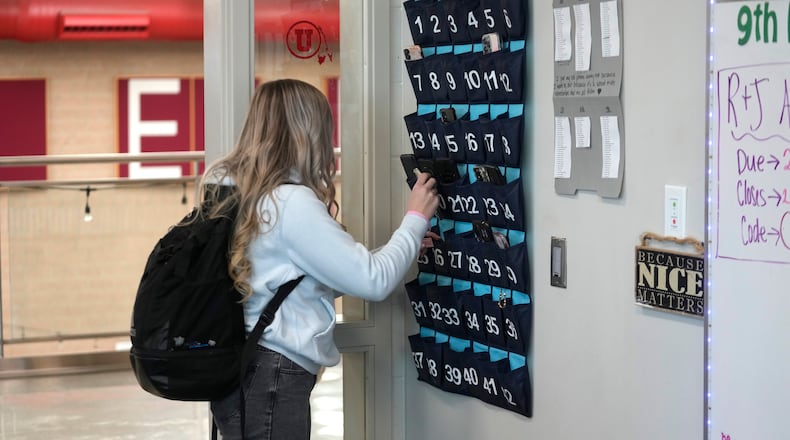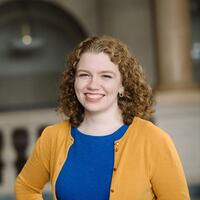It also would require students to keep electronic devices out of the classroom, with some exceptions, like if the teacher allows the student to get the device out, in an emergency or for some medical purpose.
Most local schools already have cellphone policies that severely restrict or ban phones from school classrooms. Dayton Public and Fairborn use Yondr pouches, which locks phones away from the student for the school day. Other schools allow phones but require students to keep them in their lockers. Still others ask students to keep phones in their backpacks.
The bill would also restrict or ban devices like laptops and headphones but doesn’t include a school-issued device.
Ohio House Reps. Tom Young, R- Washington Twp., and Phil Plummer, R-Vandalia, proposed the bill. Both said the intent of the bill is to get students off their cellphones in schools.
“Kids can’t get away from bullying, especially with social media,” Plummer said. “We’re trying to limit their exposure while they’re at school.”
Public, charter, STEM and college-prep boarding schools would be affected by the bill.
Plummer said he has talked to several school administrators and students who were for the bill. He said he’s spoken to school counselors who also have said phones are a huge problem.
“We’ve seen where teachers have taken phones from kids and the kids get in fights with the teachers over their phones,” Plummer said.
Young said he wanted to make sure the bill was flexible in allowing individual schools to adopt policies that were best for them.
“I’m giving flexibility to the schools to adopt their own policy because every school is different and in Columbus, what we tend to do is one size fits all,” Young said.
Young said it was also important to him that teachers don’t have to enforce the bill but said it would be “up to the administration” to decide how to make that work.
About the Author

